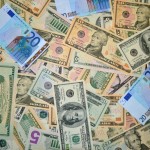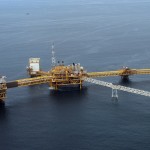Gold prices were lower during early trade in Europe today, as investors weighed the risks from Iraq, Ukraine and Gaza against stronger equities and SPDR outflows.
Gold futures for December delivery on the COMEX in New York traded at $1 309.0 per troy ounce at 8:25 GMT, down 0.15%. Prices ranged from $1 306.4 to $1 312.9 per troy ounce. The contract added 1.4% last week.
“While it appears as though concerns are fading, as long as geopolitical risks still exist in the background, gold will continue to be supported,” Zhu Siquan, analyst at GF Futures Co. in Guangzhou, China, said for Bloomberg. “We’ll get some buying on headlines but we’re not going to see large investor interest, as evidenced by the SPDR outflows.”
Silver for September was down 0.16% at $19.910 per troy ounce, while palladium was up 0.01% at $860.60. October platinum was down 0.42% at $1 472.15.
Middle East
Iraqi PM Nouri Maliki said he will take Iraq’s president Fuad Masum to court over what Maliki called a “coup”, after the President refused to offer Mr Maliki, whose party won majority in April’s election, a mandate to form a government.
There have been ever increasing calls for Mr Maliki to step down, and for a more inclusive government to be formed, with better representation of the Kurdish and Sunni Muslim minorities.
Under the current informal agreement, Iraq has a Kurd for a President, a Sunni Muslim Speaker of Parliament, and a Shia Prime Minister, who holds real executive power.
Soon after Mr Maliki went on TV to accuse the President, security forces loyal to the PM appeared in Baghdad. No confrontations were reported, but the move was widely seen as a show of force by the PM, who has dismissed the calls to step down.
The US expressed their full support for President Masum, while continuing to support Kurdish fighters in their struggle against the Islamic State (IS). Meanwhile, Kurdish authorities asked for arms to fight the “better-equipped” IS militants.
IS has been fighting Kurds and the central Shia-led government, while seeing support from a number of Sunni tribes and former Saddam-era military officers, Saddam himself a Sunni Muslim.
The country is OPEC’s second-top oil exporter, with an output of some 3 million barrels per day. The conflict has so far failed to disrupt in any way Iraq’s oil production and exports, with the latest US air strikes seen as stabilizing security against IS, though putting in question Iraq’s ability to defend itself. Maliki’s show of force has not affected prices so far.
Elsewhere, Hamas and Israel agreed to a new 72-hour ceasefire, after the conflict reignited with the expiration of the last truce on Friday. Israeli airstrikes continued throughout the weekend, killing 20 more Palestinians.
Gold is a so-called safe haven asset, which investors buy when risks and uncertainty pick up, as the precious metal has a relatively lasting and consistent value, in comparison with stocks or currencies and other commodities.
Ukraine
The Ukrainian military said it has gained more ground against the pro-Russian separatists in Donetsk, pointing that the rebels were in “panic and chaos” and had begun to desert en masse.
“A large number of enemy hardware and personnel was destroyed. Panic and chaos have been noted among the terrorists,” military spokesman Oleksiy Dmytrashkivsky said.
The separatists’ strongholds of Donetsk and Luhansk have been under siege for more than a week now. Rebels called for a ceasefire, but the proposal was dismissed by Kiev.
Meanwhile, Russia offered humanitarian aid once more, with Ukrainian President Petro Poroshenko saying he would consider it, only if it is international and unarmed.
Moscow was warned by NATO to not use a humanitarian or peacekeeping mission as a pretext to send troops to Ukraine, in light of a recent build up of Russian combat-ready troops near the Ukrainian border.
Russia is the world’s top energy exporter, and is facing increasingly tougher economic sanctions by the West over its alleged role in destabilizing Ukraine. Sanctions have so far failed to affect energy exports, but some analysts are seeing the dawn of a new Cold War.
Dollar, stocks
The US Dollar Index, which measures the greenback’s performance against six other major currencies, closed some 0.2% higher last week at 81.46. By 8:19 GMT today the gauge was up 0.10%.
Meanwhile, US stocks logged minor gains last week. Dow 30 closed the week about 0.4% higher, Nasdaq 100 added 0.3% and S&P 500 was up 0.3%, as trading on Wall Street closed on Friday.
Elsewhere, assets at the SPDR Gold Trust, the largest exchange-traded gold-backed fund, dropped some 2 tons on Friday, upping last week’s losses to some 6 tons, and reaching the lowest level in more than a month. The outflows signal decreasing investor interest in the precious metal, and are usually a leading indicator to declining gold prices.
Technical support and resistance levels
According to Binary Tribune’s daily analysis, gold December future’s central pivot point on the COMEX stands at $1 313.6. In case futures manage to breach the first resistance level at $1 321.6, the contract will probably continue up to test $1 332.1. In case the second key resistance is broken, the precious metal will likely attempt to advance to $1 340.1.
If the contract manages to breach the first key support at $1 303.1, it will probably continue to slide and test $1 295.1. With this second key support broken, the movement to the downside may extend to $1 284.6.





